The National Society of the Colonial Dames of America (NSCDA) in the State of North Carolina
125th Annual Meeting – April 25-26, 2019 – Raleigh, NC
How do we remedy the declining state of history education in the nation?
One way is by building alliances among organizations and individuals and to encourage historical organizations to get more involved in schools in their own community and state.
Towards that end, when I was invited to lead a strategic planning session and to speak to the statewide convention of The National Society of The Colonial Dames of America, I chose history education as my topic.
During our strategic planning session, we discussed the topic in depth with participation by all of the committee. I was struck by their willingness to hear and exchange new ideas and to consult and take action with state and local organizations and even national ones like the American Association for State and Local History (AASLH).
The next day I spoke to the entire audience, with Karen L. Daly, executive director of the national organization, preceding me and explaining from both her mind and heart how the Dames can make a difference. Thanks to Margaret Hamilton, who’s head of their strategic planning initiative in the state, Sara Larkin, president of the state organization, and Lindsay Newsom, organizer of the convention, the leadership is in place.
In my keynote, I focused on historical illiteracy—and didn’t hold back. The tides are against us—and not only history, but the humanities in general. If we are to make a difference, we have to work together and get in the trenches of education. Why? One example. As part of “education reform” in SC, the state legislature has recognized there is too much standardized testing. Their solution: Cut testing for history. Which means, given how school and teaching performance is evaluated by testing scores, that teaching history will be downgraded all the more.
Of course, all was not planning and speaking. Margaret and Jim Hill were wonderful hosts for Mary Sue and me. For our whole time in Raleigh, there was good food, drink, and no shortage of fun conversations and small-world connections—just good hospitality in general.
And of course, I did get some good North Carolina barbecue! In fact, I urged that things like barbecue be included in the teaching of history. Since we can read history, let’s taste it, too.

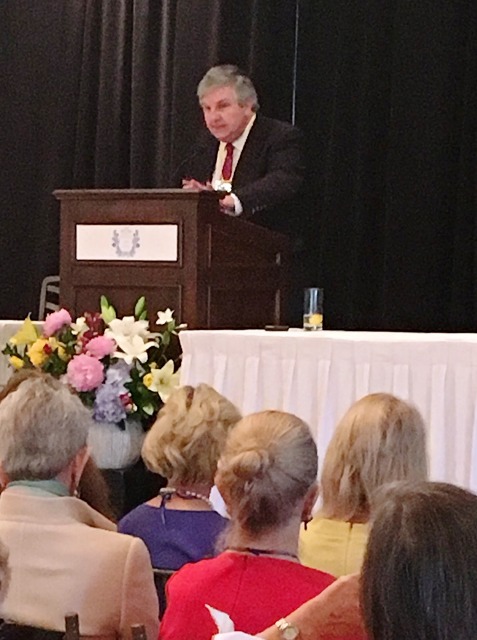
Delivering my keynote at the annual meeting of The Colonial Dames.
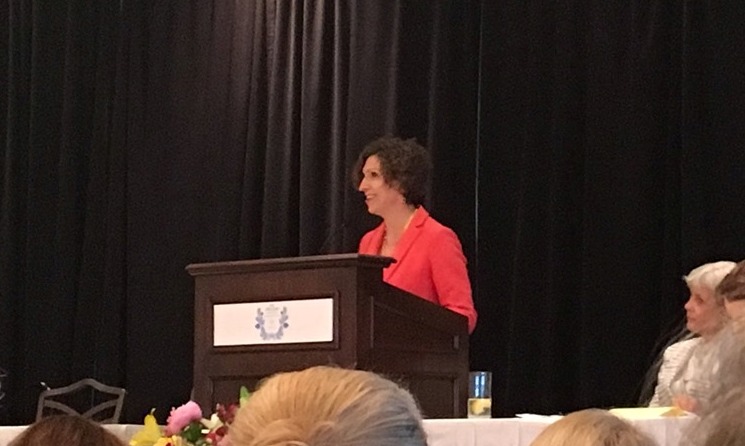
Karen L. Daly, executive director of the national organization, explaining from both her mind and heart how the Dames can make a difference.
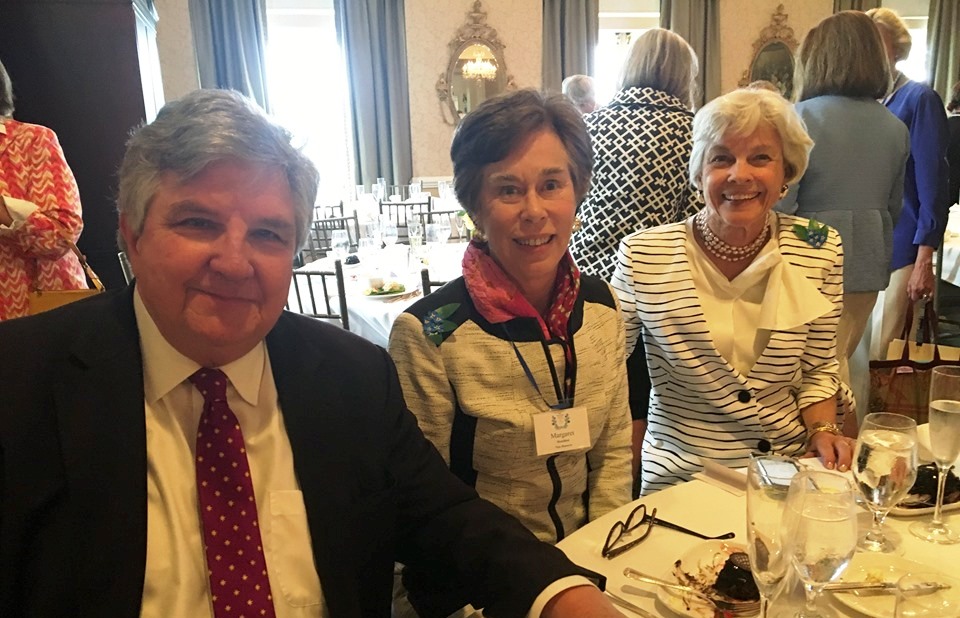
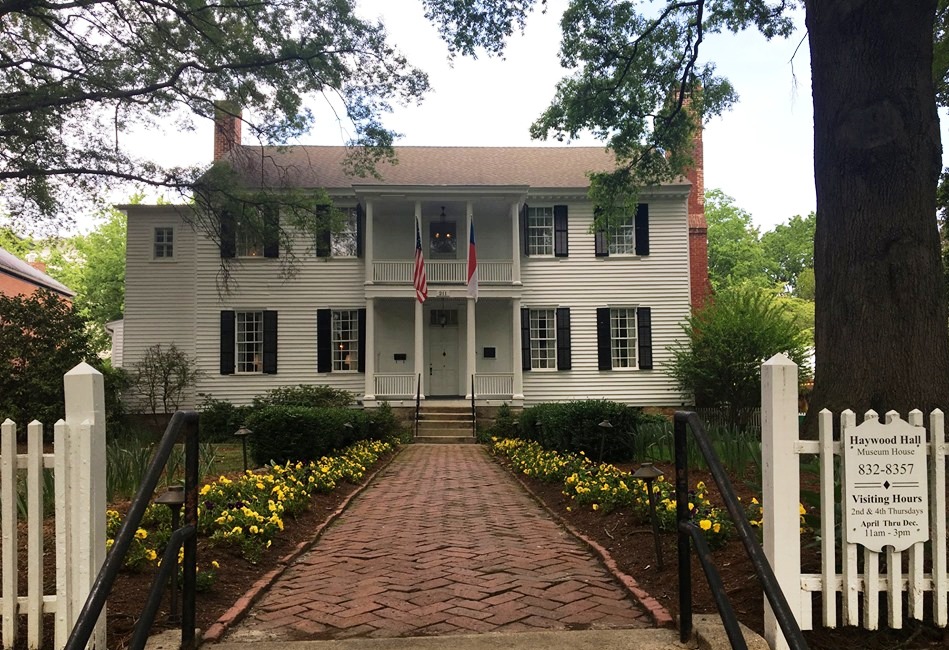
Haywood Hall is a historic property of the NSCDA-NC.
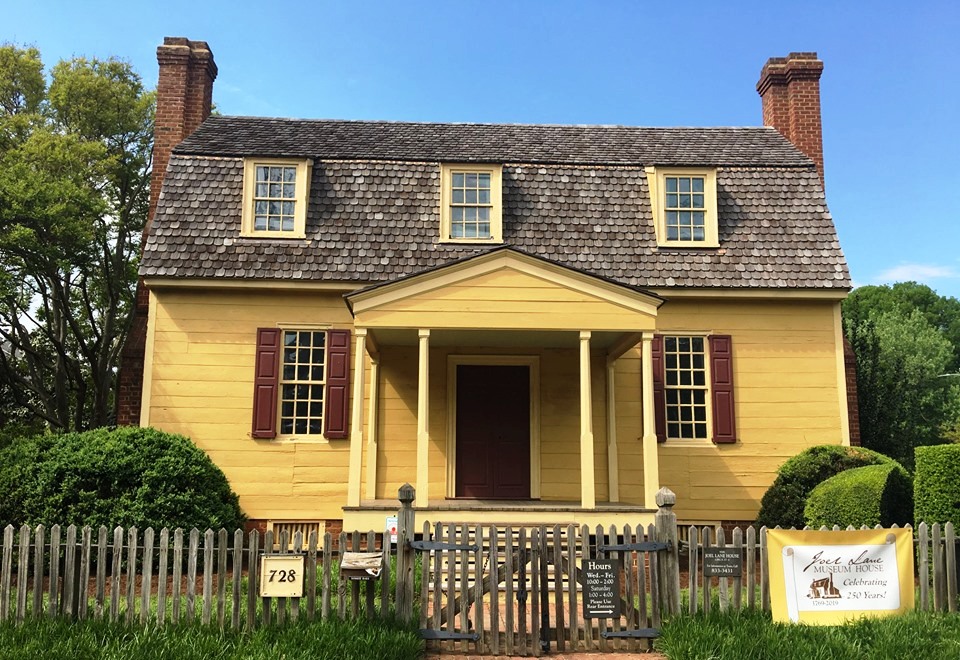
Joel Lane historic site is a historic property of the NSCDA-NC.
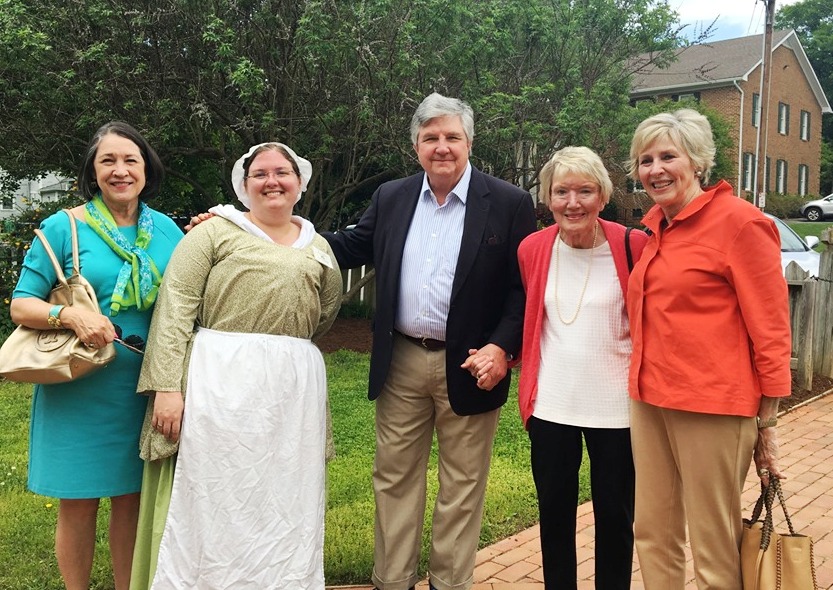
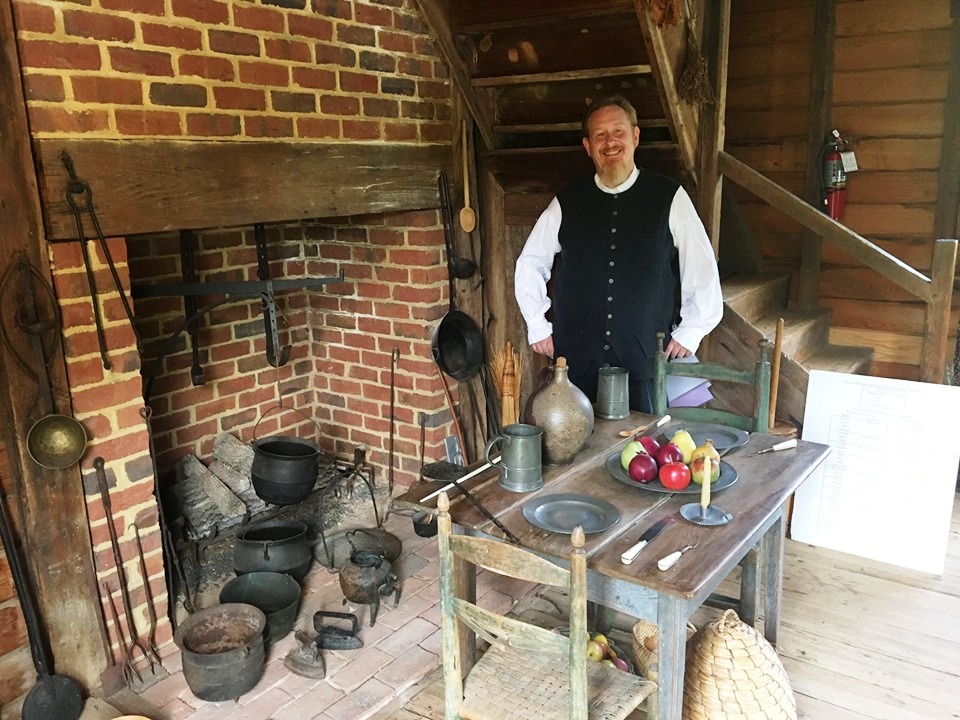
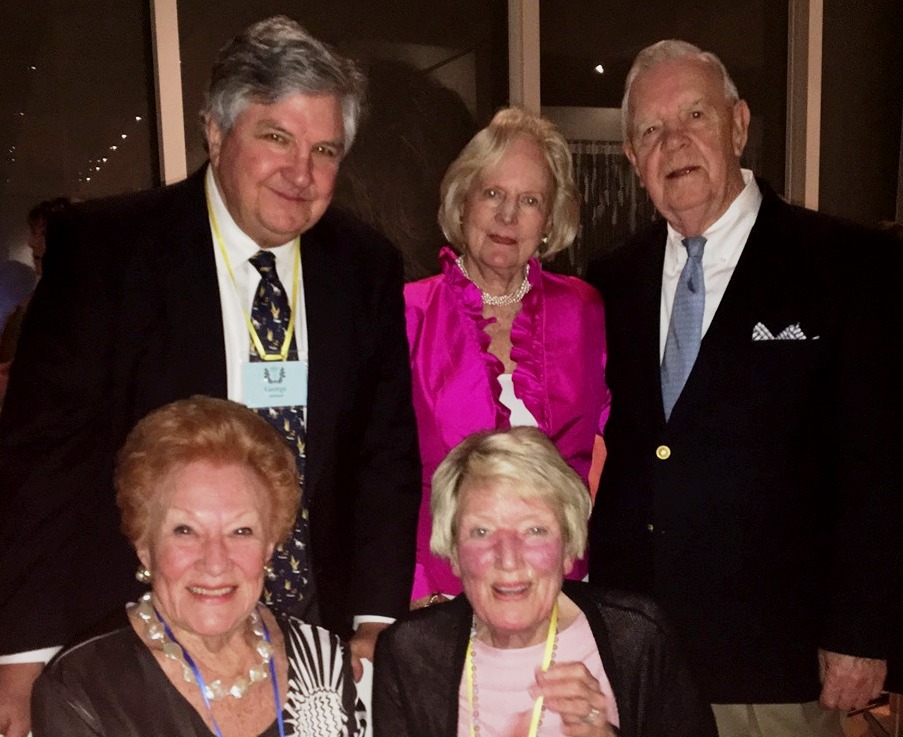
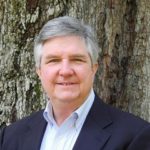 George W. McDaniel, Ph.D., is President of McDaniel Consulting, LLC, a strategy firm that helps organizations use history to build bridges within itself and to its broader constituents. The company’s tag line, “Building Bridges through History,” is grounded in McDaniel’s personal beliefs and his experience in site management, preservation, education, board development, fundraising, and community outreach. Rather than using history to divide us, he strives to help organizations use history, especially local history, to enhance cross-cultural understanding and to support local museums, preservation, and education. Dr. McDaniel led volunteer efforts with Emanuel AME Church and historical organizations in Charleston to use historic preservation to enhance racial reconciliation and healing. McDaniel is also the Executive Director Emeritus of Drayton Hall, a historic site in Charleston, SC, owned by the National Trust for Historic Preservation. He retired from Drayton Hall in 2015 after 25 years of distinguished service.
George W. McDaniel, Ph.D., is President of McDaniel Consulting, LLC, a strategy firm that helps organizations use history to build bridges within itself and to its broader constituents. The company’s tag line, “Building Bridges through History,” is grounded in McDaniel’s personal beliefs and his experience in site management, preservation, education, board development, fundraising, and community outreach. Rather than using history to divide us, he strives to help organizations use history, especially local history, to enhance cross-cultural understanding and to support local museums, preservation, and education. Dr. McDaniel led volunteer efforts with Emanuel AME Church and historical organizations in Charleston to use historic preservation to enhance racial reconciliation and healing. McDaniel is also the Executive Director Emeritus of Drayton Hall, a historic site in Charleston, SC, owned by the National Trust for Historic Preservation. He retired from Drayton Hall in 2015 after 25 years of distinguished service.
A frequent writer, speaker, and facilitator about such issues, he can be reached at gmcdaniel4444@gmail.com or through his website at www.mcdanielconsulting.net.
Header Image: Mary Sue, seated left, and I with members of the statewide convention of The National Society of The Colonial Dames of America.
All images courtesy of the author unless otherwise noted.
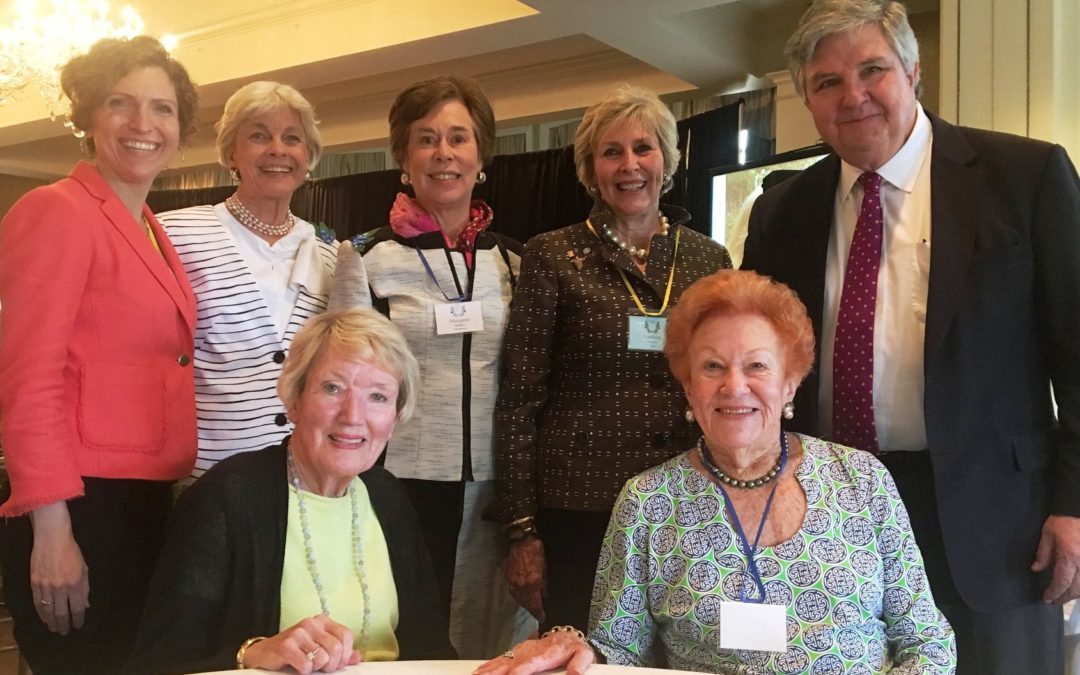
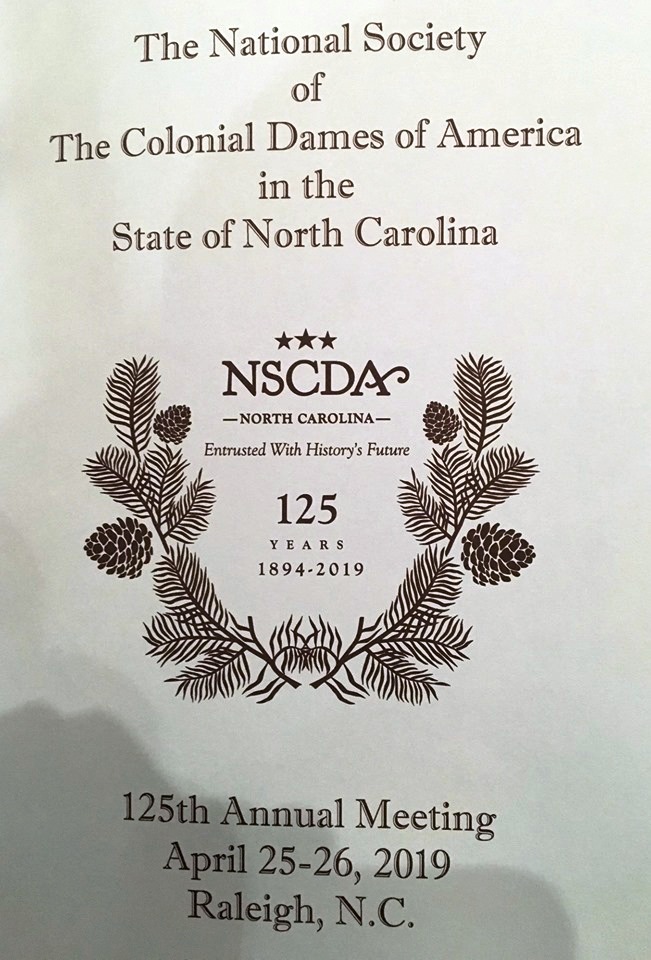
 McDaniel Consulting LLC is a strategy firm that helps organizations use history to build bridges within itself and its broader constituents.
McDaniel Consulting LLC is a strategy firm that helps organizations use history to build bridges within itself and its broader constituents.